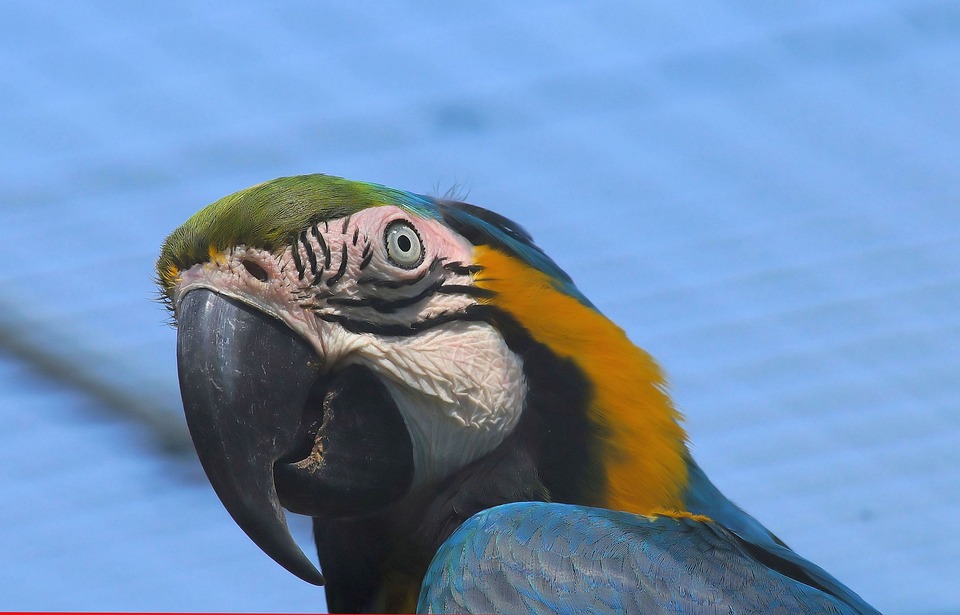Introduction:
Understanding the behavior of our feathery companions is crucial for maintaining their overall well-being. Parrots are known for their intelligence, curiosity, and social nature. While various factors influence their behavior, such as environment and social interactions, did you know that the fruits they consume can also impact their mood? In this article, we will delve into the fascinating world of parrot behavior and explore how different fruits can influence their mood.
1. The Role of Diet in Parrot Behavior:
1.1 The link between diet and behavior:
The diet of a parrot plays a significant role in its behavior. Just like humans, parrots can experience mood swings and behavioral changes based on their nutritional intake. Ensuring a balanced diet is essential for a parrot’s overall well-being.
1.2 Importance of a balanced diet:
A balanced diet for parrots consists of essential nutrients, including proteins, carbohydrates, fats, vitamins, and minerals. A well-rounded diet ensures that parrots receive the necessary nutrients to support their physical and mental health. Fruits are an important component of a balanced diet for parrots.
2. Fruits: A Natural Mood Enhancer for Parrots:
2.1 Fruit consumption and its impact on parrot mood:
Fruits can have a positive impact on a parrot’s mood. They provide natural sugars, vitamins, and antioxidants that help boost overall well-being. Parrots often enjoy the sweet taste and vibrant colors of fruits, which can contribute to their happiness and mental stimulation.
2.2 Nutritional benefits of fruits for parrots:
Fruits are rich in essential vitamins and minerals that are beneficial for parrots. They provide vitamin C, vitamin A, potassium, and various antioxidants that support immune function, vision health, and overall vitality. Including a variety of fruits in a parrot’s diet can help prevent deficiencies and support their overall health.
3. Understanding the Impact of Different Fruits on Parrot Behavior:
3.1 Citrus Fruits:
3.1.1 Positive effects on parrot mood:
Citrus fruits, such as oranges and tangerines, can have a positive impact on a parrot’s mood. The zesty scent and taste of citrus fruits can provide a refreshing and invigorating experience for parrots, promoting a sense of well-being and energy.
3.1.2 Potential negative effects and precautions:
While citrus fruits can be beneficial, they should be offered in moderation. The high acidity content in citrus fruits may cause digestive issues for some parrots. It is important to monitor your parrot’s reaction and consult with an avian veterinarian if any adverse effects occur.
3.2 Berries:
3.2.1 Mood-boosting properties:
Berries, such as strawberries, blueberries, and raspberries, are packed with antioxidants and natural sugars that can positively impact a parrot’s mood. The vibrant colors and sweet flavors of berries can provide a sensory delight for parrots, promoting happiness and mental stimulation.
3.2.2 Recommended berry options for parrots:
When offering berries to parrots, it is essential to choose organic options and wash them thoroughly to remove any potential pesticides. Strawberries, blueberries, and raspberries are safe options for most parrot species.
3.3 Tropical Fruits:
3.3.1 Excitement-inducing effects:
Tropical fruits, such as mangoes, papayas, and pineapples, can have an excitement-inducing effect on parrots. The exotic scents and flavors of these fruits can stimulate their senses and promote a sense of curiosity and exploration.
3.3.2 Moderation and variety:
While tropical fruits can be enjoyed by parrots, they should be offered in moderation due to their higher sugar content. It is important to provide a variety of fruits to ensure a balanced diet and prevent overconsumption of any specific fruit.
3.4 Melons:
3.4.1 Hydrating and refreshing impact:
Melons, such as watermelon and cantaloupe, can have a hydrating and refreshing impact on parrots. The high water content in melons can help keep parrots hydrated, especially during hot weather. The sweet taste and soft texture of melons can also provide sensory satisfaction.
3.4.2 Serving suggestions:
When offering melons to parrots, it is important to remove any seeds or rinds that may pose a choking hazard. Cut the melon into small, manageable pieces to facilitate easy consumption.
4. Frequently Asked Questions (FAQs):
4.1 Can parrots eat bananas?
Yes, bananas are safe for parrots to consume. They are a good source of potassium and fiber. However, like all fruits, bananas should be offered in moderation as part of a balanced diet.
4.2 Are grapes safe for parrots?
Grapes can be safely offered to parrots, but they should be provided in moderation. It is important to remove any seeds and cut them into small pieces to prevent choking hazards.
4.3 How much fruit should I include in my parrot’s diet?
The amount of fruit to include in a parrot’s diet depends on its species, size, and individual needs. Generally, fruits should make up around 10-15% of a parrot’s daily diet. Consult with an avian veterinarian to determine the appropriate amount for your parrot.
4.4 Are there any fruits that I should avoid feeding my parrot?
Some fruits, such as avocados, chocolate, and certain stone fruits (e.g., cherries, peaches, plums), can be toxic to parrots and should be avoided. It is important to research and consult with an avian veterinarian to ensure you are offering safe fruits to your parrot.
4.5 Can fruit consumption affect a parrot’s behavior negatively?
While fruits can have positive effects on a parrot’s behavior, overconsumption or offering fruits with high sugar content in excess can lead to obesity and other health issues. It is important to offer fruits as part of a balanced diet and monitor their intake to avoid any negative impacts.
Conclusion:
By understanding the impact of different fruits on parrot behavior, we can enhance their overall well-being and create a positive environment for our feathered friends. Remember to offer a balanced diet that incorporates a variety of fruits suitable for parrots. Always consult with an avian veterinarian to ensure you are providing the best dietary options for your parrot. Happy parrot, happy owner!









